Introduction To Caffeine In Lipton Tea
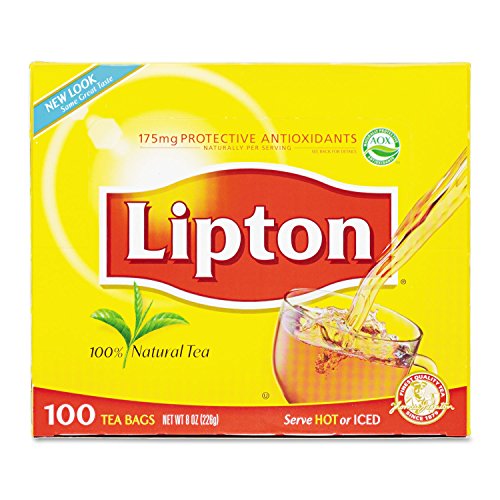
Lipton Tea is a popular choice for tea lovers around the world, but how much caffeine does it actually contain? Understanding the caffeine content in Lipton Tea is important for those who want to monitor their caffeine intake. Caffeine is a naturally occurring compound found in tea, and it is known for its stimulating effects on the body. In this article, we will explore the different varieties of Lipton Tea and their caffeine content, as well as the factors that can affect caffeine levels. So grab a cup of Lipton Tea and join us as we unveil the tea buzz!
Understanding Caffeine: What It Is And Its Effects On The Body
Caffeine is a natural compound found in tea, coffee, and certain other plants. It acts as a stimulant, affecting the central nervous system and temporarily warding off drowsiness. When consumed, caffeine is absorbed into the bloodstream and reaches the brain, where it blocks the action of adenosine, a neurotransmitter responsible for promoting sleep and relaxation. This results in increased focus, alertness, and heightened energy levels. However, excessive intake of caffeine can lead to side effects such as restlessness, nervousness, and disrupted sleep patterns. It is important to consume caffeine in moderation and be aware of its potential effects on the body.
Overview Of Lipton Tea And Its Caffeine Content
Lipton Tea offers a wide range of varieties, including black, green, herbal, and flavored teas. While Lipton teas are known for their delicious taste and refreshing qualities, it’s important to note that they do contain caffeine. The caffeine content in Lipton teas is generally about half as much as coffee. However, it’s important to keep in mind that the exact amount of caffeine can vary depending on the specific variety of Lipton Tea. So, whether you’re a fan of black tea or prefer the soothing qualities of green tea, be mindful of your caffeine intake when enjoying Lipton Tea.
Caffeine Content In Different Varieties Of Lipton Tea

Caffeine content in Lipton Tea can vary depending on the variety. While herbal teas are typically caffeine-free, black and green teas do contain caffeine. On average, an 8 fl oz cup of Lipton Black Tea contains around 55-65 milligrams of caffeine, while Lipton Green Tea contains about 35 milligrams. It’s important to note that these are general ranges and the exact caffeine content can vary depending on factors such as processing methods and brewing time. Be sure to check the packaging or Lipton’s website for specific caffeine information for each variety.
Caffeine Levels In Lipton Black Tea
Lipton Black Tea is known for its bold and robust flavor, and it also contains caffeine. On average, an 8 fl oz cup of Lipton Black Tea contains around 55-65 milligrams of caffeine. However, it’s important to note that this amount can vary depending on factors such as brewing time and temperature. The longer the tea is brewed and the hotter the water, the more caffeine is extracted. So, if you’re looking for a pick-me-up, Lipton Black Tea can provide a moderate amount of caffeine to help you stay alert.
Caffeine Levels In Lipton Green Tea
Lipton’s green tea is known for its fresh and delicate taste, making it a popular choice among tea enthusiasts. In an eight fl oz cup of Lipton Green Tea, you can expect to find approximately 35-45 milligrams of caffeine. This amount may vary depending on brewing time and temperature. Green tea is often selected for its milder caffeine kick, making it a great option for those looking for a more subtle energy boost. So, if you’re looking for a refreshing and invigorating beverage, Lipton Green Tea can certainly hit the spot.
Factors Affecting Caffeine Levels In Lipton Tea
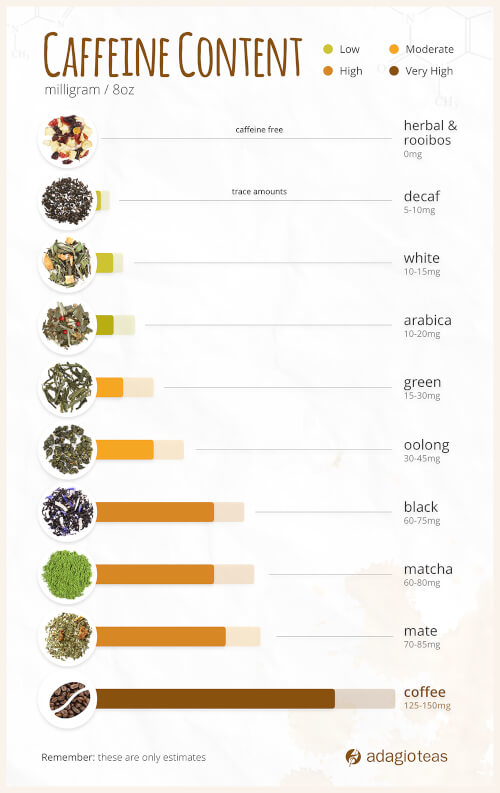
Several factors can influence the caffeine levels in Lipton tea. One important factor is the processing method used for tea production. Different processing methods can affect the amount of caffeine retained in the tea leaves. Additionally, the brewing time and temperature can also impact caffeine content. The longer the tea is steeped, the more caffeine is extracted into the brewed tea. Similarly, higher water temperatures can result in higher caffeine levels. It’s important to be mindful of these factors when brewing Lipton tea to determine the desired caffeine content.
Processing Methods And Caffeine Retention
The processing methods used in the production of Lipton Tea can impact the retention of caffeine in the final product. Different methods, such as oxidation and fermentation, can affect the amount of caffeine that remains in the tea leaves. For example, black tea undergoes a longer oxidation process, which results in higher caffeine levels compared to green tea. Additionally, the level of tea leaf cut and the size of the tea particles can also influence caffeine retention. It’s important to consider these factors when determining the caffeine content of Lipton Tea.
Brewing Time And Temperature Impact On Caffeine Content
The brewing time and temperature of Lipton Tea can have a significant impact on its caffeine content. When tea is steeped for a longer duration, more caffeine is extracted from the tea leaves, resulting in a higher caffeine content. Similarly, brewing tea at a higher temperature can also increase the caffeine levels. Therefore, if you prefer a stronger kick of caffeine, you can steep your Lipton Tea for a longer time and use hotter water. However, it’s important to note that longer steeping times and higher temperatures can also affect the flavor profile of the tea.
Health Impact Of Caffeine In Lipton Tea
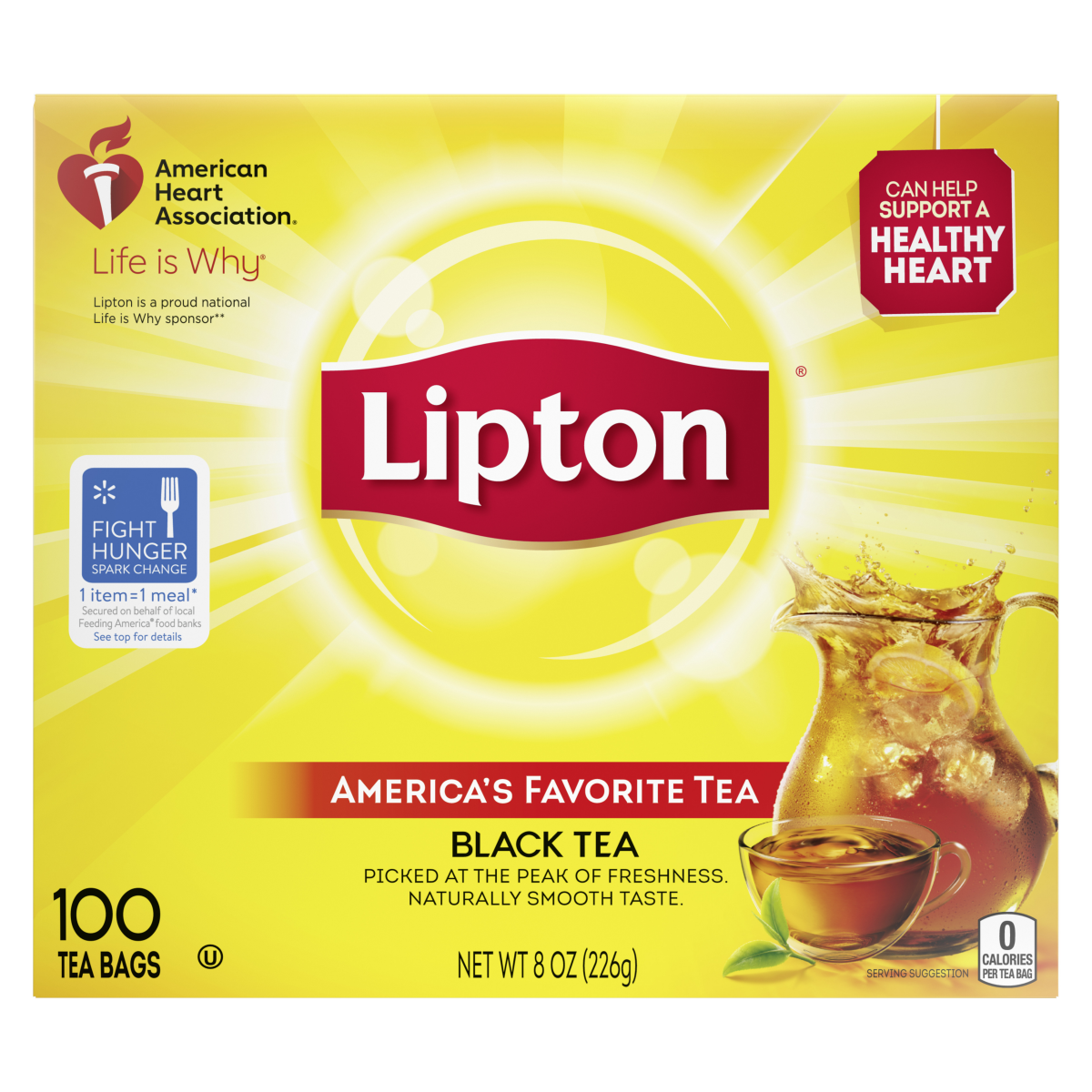
Consuming caffeine in moderation can have several benefits, including increased alertness and improved cognitive function. Lipton Tea, with its caffeine content, can provide these benefits. However, it’s important to be mindful of the potential drawbacks. Excessive caffeine intake can lead to symptoms such as increased heart rate and insomnia. Additionally, caffeine can have diuretic effects, causing increased urination. It’s recommended to adhere to daily caffeine intake guidelines to ensure you’re not consuming too much. As with any food or beverage, it’s important to enjoy Lipton Tea in moderation as part of a balanced diet.
Benefits And Drawbacks Of Consuming Caffeinated Tea
Consuming caffeinated tea, like Lipton Tea, can have several benefits. Caffeine is known to increase alertness and improve cognitive function, helping you feel more awake and focused. It can also provide a temporary energy boost and enhance athletic performance. However, it’s important to be mindful of the potential drawbacks. Excessive caffeine intake can lead to symptoms such as increased heart rate, restlessness, and insomnia. Additionally, caffeine can have diuretic effects, causing increased urination. It’s important to enjoy caffeinated tea in moderation and be aware of your personal tolerance to caffeine.
Recommended Daily Caffeine Intake Guidelines
The recommended daily caffeine intake varies for different individuals and age groups. The general guideline for adults is to consume no more than 400 mg of caffeine per day, which is equivalent to about 4 cups of brewed coffee or 8 cups of black tea. Pregnant women are advised to limit their caffeine intake to 200 mg per day or less. Children and teenagers should consume even less caffeine, with recommendations ranging from 45 to 85 mg per day depending on their age. It’s important to be mindful of your caffeine intake and listen to your body’s response.
Decaffeinated Lipton Tea: Options And Considerations
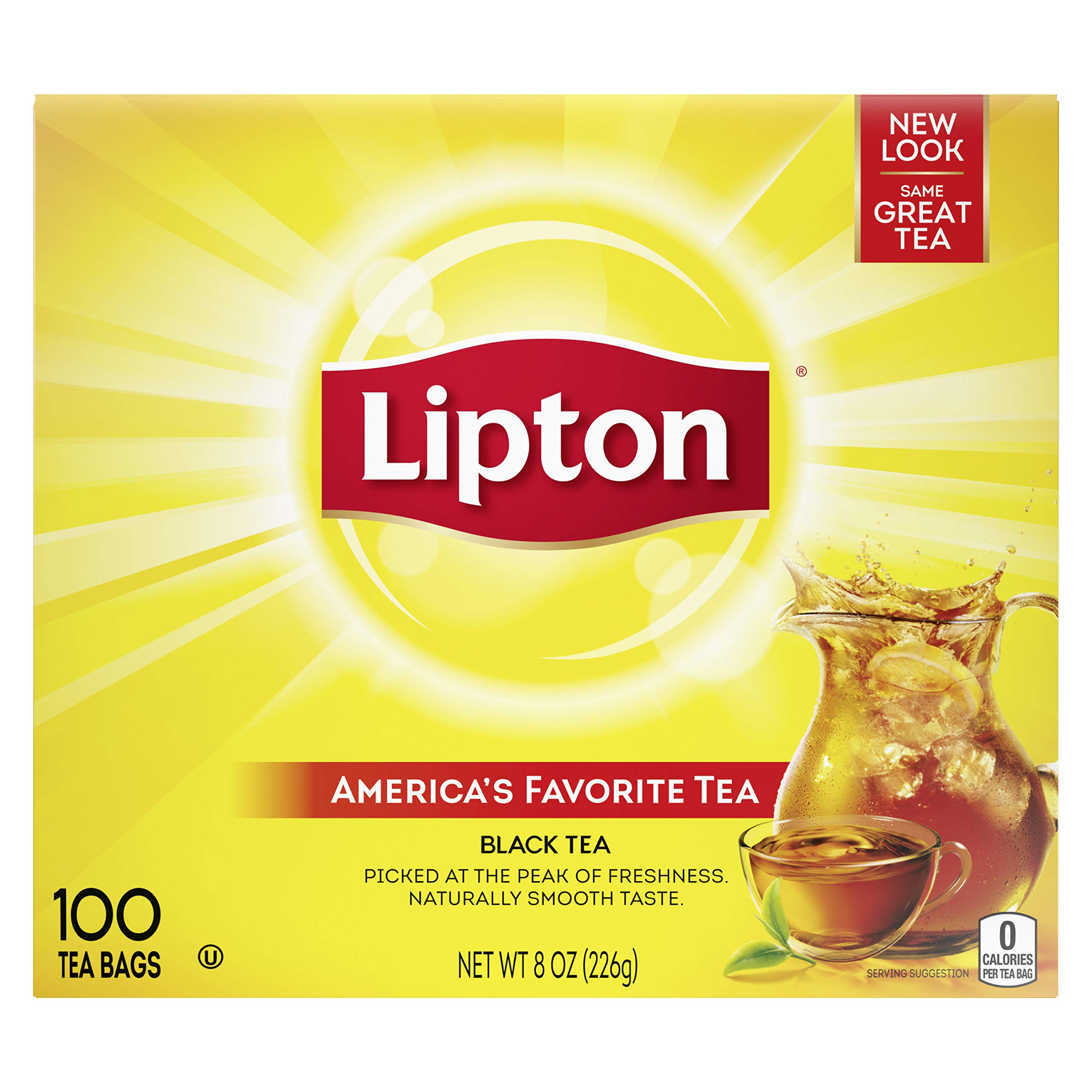
For those who prefer to enjoy Lipton Tea without the stimulating effects of caffeine, options for decaffeinated versions are available. Decaffeinated Lipton Tea goes through a special process to remove most of the caffeine while preserving the flavor. However, it is important to note that decaffeinated tea is not completely caffeine-free, as trace amounts may still remain. When choosing decaf Lipton Tea, it is essential to consider the taste, as the decaffeination process can affect the flavor profile. It is recommended to try different decaffeinated options to find the one that best suits your preferences.
Decaffeination Process In Tea Production
Decaffeination is a crucial process in producing decaf Lipton Tea. There are several methods used to remove caffeine from tea leaves, including the ethyl acetate method and the carbon dioxide method. In the ethyl acetate method, tea leaves are soaked in a solvent, which binds to the caffeine and extracts it from the leaves. The carbon dioxide method involves using high-pressure carbon dioxide to extract caffeine. Both methods aim to retain the flavor and aroma of the tea while reducing caffeine content. After the decaffeination process, the tea leaves are dried and packaged, ready for brewing.
Taste And Caffeine Content In Decaf Lipton Tea
Decaf Lipton Tea offers a great alternative for those looking to reduce their caffeine intake. While the caffeine content is significantly lower compared to regular tea, it is not completely caffeine-free. On average, an eight fl oz cup of decaf Lipton Tea contains around 1-4 milligrams of caffeine. The taste of decaf Lipton Tea is often described as milder and less robust compared to its caffeinated counterpart. However, the flavor and aroma are still enjoyable, making it a suitable option for tea lovers who prefer a gentler tea experience.
Conclusion
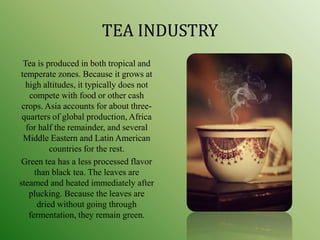
In conclusion, Lipton Tea is a popular beverage enjoyed by many, offering a variety of flavors and caffeine levels to suit different preferences. Understanding the caffeine content in Lipton Tea is important, as it can have both positive and negative effects on the body. It is crucial to consume caffeinated beverages in moderation and adhere to recommended daily caffeine intake guidelines. Additionally, decaf Lipton Tea provides a suitable option for those seeking to reduce their caffeine intake, while still enjoying the taste and aroma of tea. Stay informed and savor Lipton Tea responsibly.
Final Thoughts On Enjoying Lipton Tea Responsibly
In conclusion, it is important to enjoy Lipton Tea responsibly. While the caffeine in Lipton Tea can provide a pleasant and energizing experience, it is crucial to consume it in moderation. Adhering to recommended daily caffeine intake guidelines ensures that you can enjoy the benefits of Lipton Tea without exceeding safe caffeine consumption levels. Remember to personalize your brewing method to suit your preferences and needs. By being mindful and responsible in your tea consumption, you can continue to savor the taste and aroma of Lipton Tea while maintaining a healthy balance.
Additional Resources For Exploring Caffeine In Tea
For additional resources and information on caffeine in tea, there are a few sources you can explore. One reliable source is the National Center for Complementary and Integrative Health (NCCIH). They provide extensive research and studies on the health benefits and effects of caffeine in tea. Another helpful resource is the Tea Association of the USA, which offers insights and educational materials on the various types of tea and their caffeine content. Lastly, Caffeine Informer is a website that provides comprehensive data on the caffeine content of different tea brands and varieties. These resources can further enhance your understanding of caffeine in tea and help you make informed choices about your tea consumption.
FAQ About How Much Caffeine In Lipton Tea? Unveiling The Tea Buzz
Q: How much caffeine is in Lipton Tea?
A: The amount of caffeine in Lipton Tea can vary depending on the type of tea. On average, a 8 oz. cup of Lipton Black Tea contains about 40-70 mg of caffeine, while Lipton Green Tea typically has around 25-45 mg of caffeine per 8 oz. serving.
Q: Does Lipton Tea have decaffeinated options?
A: Yes, Lipton offers decaffeinated versions of their teas. These decaf options have undergone a process to remove most of the caffeine, providing a caffeine-free alternative for tea lovers.
Q: Is Lipton Tea a good choice for those sensitive to caffeine?
A: For individuals who are sensitive to caffeine, opting for decaffeinated Lipton Tea or choosing herbal teas from Lipton’s range would be a better choice. Herbal teas are naturally caffeine-free and can still offer a flavorful tea experience.
Q: Can I choose Lipton Tea based on caffeine content?
A: Yes, if caffeine content is a concern for you, you can select Lipton Teas based on their caffeine levels. Black teas generally have higher caffeine content compared to green or herbal teas, so you can choose accordingly.
Q: Are there any health benefits associated with caffeine in Lipton Tea?
A: Caffeine in moderation can have certain health benefits such as increased alertness and improved focus. However, it’s essential to consume caffeine within recommended limits to avoid potential negative effects on health.

Acoffeer, a brand that celebrates the joy of exploring the world with a cup of coffee in hand, was founded with a simple yet profound mission: to inspire and unite coffee lovers and travel enthusiasts around the globe. Our journey began with a deep passion for both coffee and travel and a strong belief in the power of these two forces to create unforgettable experiences. From the bustling streets of cosmopolitan cities to the serene landscapes of remote destinations, Acoffeer has always been committed to sharing the magic of discovering new places and savoring the perfect cup of coffee along the way.